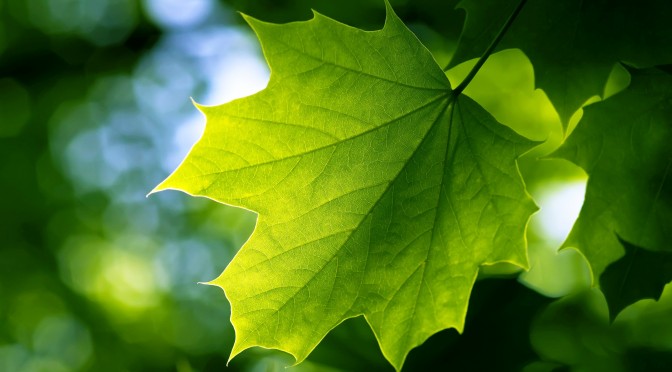This post concludes the “Ask a Science Student” series. For previous responses, see chemistry, physics, and astronomy.
Ask a Science Student, Part 4: Biology
By Meagan Goldman ’16
Biology deals with energy on both a macro level – the cycling of energy through ecosystems – and a micro level – the energy required for biological processes. Energy in an ecosystem comes initially from the sun. Primary producers, plants and cyanobacteria, convert the sun’s electromagnetic energy into chemical energy, stored in the bonds of compounds like glucose and ATP. Energy is then passed to consumers and eventually, when organisms die, to decomposers.
Photosynthesis is clearly key in ecosystems’ energy, and the evolution of photosynthesis changed earth forever. RuBisCo, one of the key enzymes in photosynthesis, is thought to be the most abundant protein on earth. However, it is extremely inefficient compared to other enzymes. Biologists believe its inefficiency may be due to the fact it has been highly conserved over time because of its importance to plants’ survival. A great deal of research is focused on increasing the efficiency of RuBisCo, which would increase the glucose supply in plants, and in turn enhance crop yield.
ATP, adenosine triphosphate, is the main energy “currency” of living organisms. It is formed during photosynthesis and cellular respiration by the addition of a phosphate group to ADP (adenosine diphosphate). This phosphate’s bond to ADP is easy to break and releases a relatively large amount of energy. The released energy is used in almost all biological processes, from molecule synthesis to cell division to muscle movement. However, no biological reactions would occur without enzymes. One of the greatest questions about the rise of life is how the earliest organisms catalyzed reactions without enzymes. After it was discovered that RNA can act as a catalyst, many biologists began supporting the RNA world hypothesis, which hypothesizes that self-replicating RNA molecules were the first life forms.
Biology therefore addresses many types of energy, from the flow of energy through ecosystems, to the processes of photosynthesis and respiration, to the questions of how life first arose on earth.
Image source: http://www.hdwallpapersinn.com/green-leaf-hd-wallpapers.html
